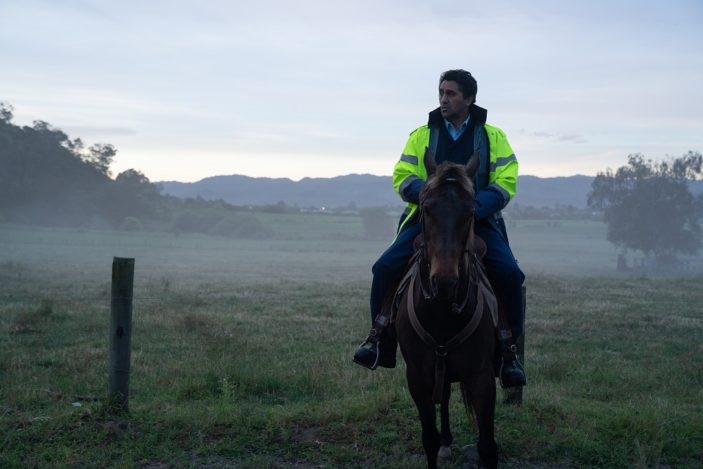
When looking at the treatment of indigenous populations the world over, it would be safe to say that any “crime” they have committed is simply existing. Largely white populations, who have so often taken away the rights and lands that they inhabited originally, hope that apologies and acknowledgements are enough to reconcile their behaviour, but such affected communities know there’s still a considerable road to travel for there ever to be equality.
Muru is a prime example of such a mentality.
Based on true events, Tearepa Kahi‘s film serves as more of a response to than a recreation of the 2007 raids, where the New Zealand police raided the Tūhoe community for supposed breaches of the Terrorism Suppression Act. Out of the eighteen people arrested, only four were brought to trial, and, naturally, the actions of the police ended up costing New Zealanders over $14 million.
Central to Muru is Taffy (Cliff Curtis), a police officer and local school bus driver, who has to choose between his profession or his people when the raids take place within his community. People he knows and love are threatened – Jay Ryan and Manu Bennett add intense weight as the officers leading the charge – and his loyalty is ultimately questioned; Kahi’s script, despite being deeply rooted in commentary on the destructiveness of racism, adopts a thriller temperament in order for the film itself to entertain as much as it educates.
The view points of the police, the indigenous community, and Taffy continually intersect throughout to drive home Kahi’s intent of showcasing the Tūhoe’s guilt by pure default. Power and corruption so often take precedence over the truth, and Kahi knows this, which makes Muru all the more frustrating. But in the film being a response to such unjust raids, there’s a strength and a realism in the anger projected that layers the film with a certain sense of hope; even if the noise is coming over a decade after the fact.
![]()
![]()
![]()
![]()
![]()
FOUR STARS (OUT OF FIVE)
Muru is now screening in select Australian theatres.
